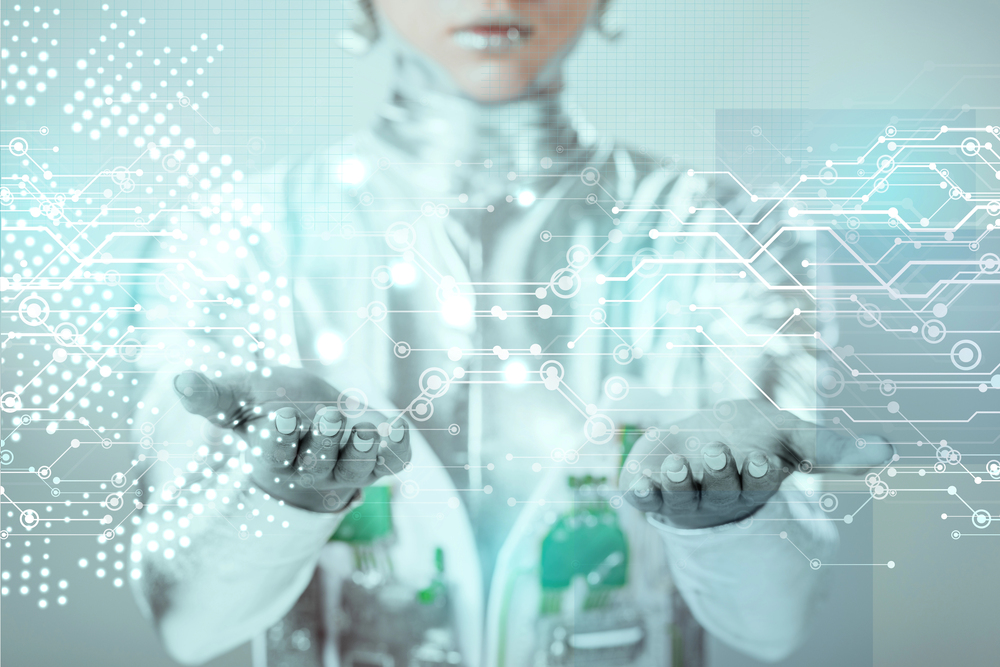AI Revolution Ahead
Miles Russell
2025-09-29
6 min read

Artificial Intelligence (AI) is revolutionizing the world at an unprecedented pace. From self-driving cars to intelligent personal assistants like Siri and Alexa, AI is seamlessly integrating into our daily lives. This blog post aims to explore the opportunities and challenges AI presents, shedding light on its immense potential and the obstacles that lie ahead.
The Promising Horizon of AI
AI is more than just a buzzword; it holds the key to unlocking myriad possibilities that can transform industries and enhance human capabilities.
Transforming Healthcare
AI is set to revolutionize healthcare with its ability to analyze vast amounts of data quickly and accurately. Machine learning algorithms can detect patterns in medical imaging, predict disease outbreaks, and even recommend personalized treatment plans. For example, AI-driven tools are now capable of diagnosing diseases like cancer at an early stage, significantly improving patient outcomes.
Enhancing Education
In the education sector, AI can tailor learning experiences to individual student needs. Adaptive learning platforms use AI to analyze student performance and adjust the curriculum accordingly. This personalized approach ensures that students receive the support they need to excel academically. Additionally, AI-powered chatbots can provide instant assistance to students, making learning more accessible and efficient.
Revolutionizing Transportation
The transportation industry is undergoing a significant transformation thanks to AI. Self-driving cars, powered by advanced AI algorithms, promise to reduce accidents, ease traffic congestion, and provide greater mobility for people with disabilities. Companies like Tesla and Waymo are at the forefront of this revolution, pushing the boundaries of what autonomous vehicles can achieve.
The Ethical Dilemmas of AI
While AI offers tremendous potential, it also raises important ethical considerations that must be addressed.
Privacy Concerns
AI systems often rely on vast amounts of data to function effectively. This data collection raises concerns about privacy and data security. For instance, facial recognition technology, widely used in surveillance, has sparked debates about its potential for misuse and invasion of privacy. Ensuring that AI systems are designed with robust privacy safeguards is crucial.
Bias in AI
AI algorithms learn from historical data, which can perpetuate existing biases. If not properly addressed, these biases can lead to unfair and discriminatory outcomes. For example, biased AI algorithms in hiring processes can result in gender or racial discrimination. It is essential to develop AI systems that are transparent, accountable, and free from bias.

Job Displacement
The rise of AI automation has sparked fears of job displacement. While AI can streamline tasks and increase efficiency, it also threatens to replace certain job roles. Jobs in industries such as manufacturing, customer service, and transportation are particularly vulnerable. To mitigate this challenge, policymakers and businesses must invest in reskilling and upskilling programs to prepare the workforce for the AI-driven future.
Navigating the Complexities of AI Integration
Successfully integrating AI into various sectors requires careful planning and consideration.
Collaboration Between Humans and AI
Rather than replacing humans, AI should be seen as a tool to augment human capabilities. Collaborative efforts between humans and AI can lead to innovative solutions. For example, in the field of surgery, AI-assisted robotic systems can enhance surgeons' precision and reduce the risk of complications. This synergy between humans and AI can drive progress and improve outcomes.
Regulatory Frameworks
Establishing clear and comprehensive regulatory frameworks is essential to govern the development and deployment of AI. These frameworks should address ethical concerns, ensure accountability, and promote transparency. Governments and organizations must work together to create guidelines that strike a balance between innovation and responsible AI use.
Continuous Learning and Adaptation
The field of AI is rapidly evolving, and staying updated with the latest advancements is crucial. Continuous learning and adaptation are necessary to harness the full potential of AI. Companies should invest in research and development, encourage experimentation, and foster a culture of innovation. By doing so, they can stay ahead of the curve and leverage AI effectively.
The Road Ahead for AI
The future of AI holds immense promise, but it also requires thoughtful navigation of its challenges.
Advancements in Natural Language Processing
Natural Language Processing (NLP) is a key area of AI that focuses on enabling machines to understand and interact with human language. Advancements in NLP will pave the way for more sophisticated virtual assistants, improved language translation, and enhanced sentiment analysis. These developments will revolutionize how we communicate with AI systems.
AI in Climate Change Mitigation
AI can play a vital role in addressing one of the most pressing global challenges – climate change. By analyzing vast amounts of environmental data, AI can help predict climate patterns, optimize energy consumption, and develop sustainable solutions. For instance, AI-powered systems can monitor deforestation, track wildlife populations, and suggest strategies for conservation.
Ethical AI Development
Ensuring ethical AI development is a collective responsibility. Researchers, policymakers, and businesses must collaborate to establish ethical guidelines and standards. Transparency, fairness, and accountability should be at the core of AI development. This approach will build trust and ensure that AI benefits society as a whole. Artificial Intelligence is poised to reshape the world in ways we can only imagine. From healthcare and education to transportation and climate change mitigation, AI's potential is boundless. However, with great power comes great responsibility. Addressing ethical concerns, ensuring privacy, and promoting collaboration are essential steps toward harnessing the full potential of AI. Stay informed, stay engaged, and be part of the AI revolution. The future is now, and it is driven by artificial intelligence. For more insights on AI and its applications, subscribe to our newsletter and stay ahead in the AI-driven world.



